Harnessing the Power of AI: Transforming Your Online Business no comments

In today’s digital age, businesses are constantly seeking innovative ways to stay ahead of the competition and enhance customer experiences. One technology that has gained significant momentum and has the potential to revolutionize the way we conduct business is Artificial Intelligence (AI). AI offers numerous opportunities for online businesses, enabling them to streamline operations, personalize marketing efforts, and deliver exceptional customer service. In this blog, we will explore how AI can help your online business thrive and succeed in a rapidly evolving marketplace.
Intelligent Data Analysis
AI empowers online businesses with the ability to analyze vast amounts of data in real-time. Through machine learning algorithms, AI can identify patterns, trends, and customer preferences. By leveraging this valuable insight, businesses can make informed decisions, optimize product offerings, and tailor marketing strategies to specific target audiences. AI-driven data analysis can also help identify emerging market trends and predict future consumer demands, enabling businesses to stay ahead of the curve.
Enhanced Customer Experience
AI enables businesses to provide personalized and seamless customer experiences. Chatbots and virtual assistants powered by AI can handle customer inquiries, provide product recommendations, and even process transactions. These intelligent virtual assistants are available 24/7, ensuring prompt responses and assistance to customers, thereby improving customer satisfaction and loyalty. AI can also analyze customer interactions, sentiments, and feedback to identify areas for improvement, resulting in a continuous enhancement of the overall customer experience.
Efficient Inventory Management
AI can optimize inventory management by analyzing historical data, sales patterns, and market trends. By accurately forecasting demand, businesses can ensure optimal stock levels, reduce excess inventory, and minimize the risk of stockouts. AI algorithms can also automate replenishment processes, saving time and resources. Ultimately, efficient inventory management leads to cost savings and improved customer satisfaction, as products are readily available when customers need them.
Targeted Marketing and Personalization
AI empowers online businesses to deliver targeted and personalized marketing campaigns. By analyzing customer data, browsing history, and purchase behavior, AI algorithms can identify individual preferences and interests. This enables businesses to create customized marketing messages, recommend relevant products, and offer personalized discounts or promotions. As a result, businesses can engage customers on a deeper level, increase conversion rates, and foster long-term customer loyalty.
Fraud Detection and Security
AI can play a crucial role in protecting online businesses from fraudulent activities. Advanced AI algorithms can analyze vast amounts of data, detect unusual patterns, and identify potential security threats. By continuously monitoring transactions, user behavior, and network activities, AI can identify and flag suspicious activities in real-time. This proactive approach helps prevent financial losses, safeguard customer data, and maintain the trust and confidence of customers.
Power your AI with TurnKey Internet
In order to harness all the benefits AI can provide, your business will need proper hardware to handle the performance requirements AI applications demand. TurnKey Internet’s Enterprise Series Dedicated Servers feature 3rd Gen Intel Xeon Scalable Processors, delivering better performance, improved memory speed, power efficiency, advanced security technologies, and increased I/O bandwidth to accelerate diverse AI workloads from the data center to the intelligent edge. It’s the only data center CPU with built-in AI acceleration, end-to-end data science tools, and an ecosystem of smart solutions.
Conclusion
AI has emerged as a game-changer for online businesses, offering a multitude of benefits across various aspects of operations and customer engagement. By harnessing the power of AI, businesses can leverage intelligent data analysis, enhance customer experiences, optimize inventory management, personalize marketing efforts, and strengthen security measures. Embracing AI technology not only provides a competitive edge but also paves the way for sustainable growth and success in the digital marketplace. As AI continues to advance, its potential to transform online businesses is limitless. So, start exploring the possibilities and unlock the true potential of AI for your online business today.
Follow Us :Share :
TurnKey Internet Expands to Europe with Latest Server Models no comments
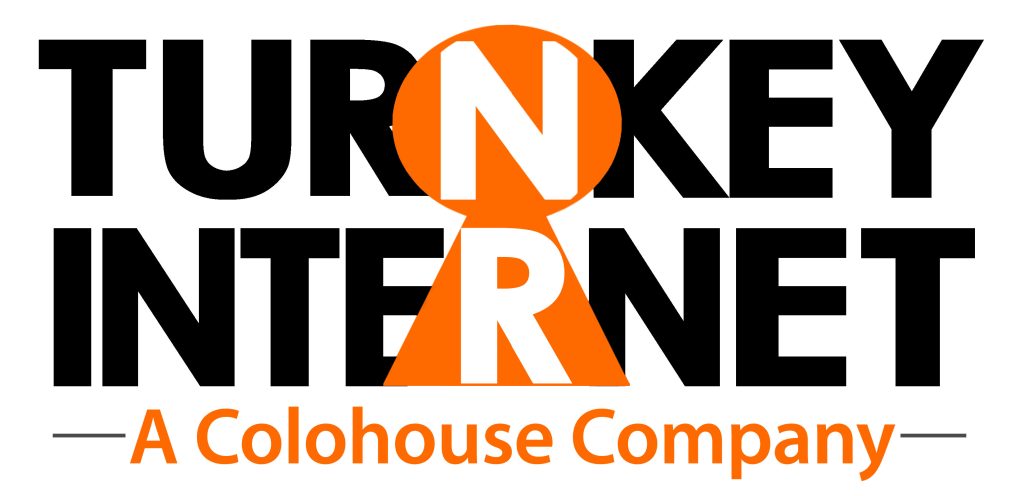
Albany, NY –– June 20, 2023, TurnKey Internet, a Colohouse Company and leading provider of colocation, cloud, bare metal and managed services, debuts its first European location to better service customer needs. The company’s carrier-neutral Amsterdam location is connected to over 115 networks and peering exchanges, including AMS-IX.
TurnKey Internet launched its latest enterprise servers featuring the 3rd Gen Intel® Xeon® Scalable processors, adding cloud VPS. This allows for the expanded workload of applications and a new dedicated server product line designed to exceed the current and future demands of the company’s fast-paced customer base.
“Our European-based customers are creating agile and mission critical environments that require 24/7 multi-cloud and multi-geolocation. With the combined resources of TurnKey Internet and Colohouse, we were able to launch our new anchor site in the Netherlands,” said Kyle Verzello, Chief Operating Officer at TurnKey Internet, a Colohouse Company. “We know location matters regarding customer servers and data. Our enterprise series servers are built on a solid bare metal foundation to provide best-in-class features in multiple state-of-the-art data centers across the United States and now in Europe.”
“Deploying our cloud and bare metal server product line in Amsterdam allows lower latency connectivity to customers in the EU along with multi-continent redundancy and disaster recovery services to our existing customers in the US. This is a huge step forward in our company’s continued growth and expansion under Colohouse,” said Joe Schoonbeck, VP of Hosting at Colohouse. “The TurnKey Internet team puts its customers first and this expansion to Amsterdam is no exception. Our customers hosted in Amsterdam can expect the same level of industry-leading service, automation, and uptime as our US-based customers have come to expect and experience. Combined with the powerhouse performance and efficiency of the new R650xs, this new location provides a true TurnKey all-in-one platform.”
TurnKey Internet plans to continue its expansion efforts in Europe and Asia throughout 2023 and beyond with new product plans on the horizon. To learn more about TurnKey Internet’s services or to configure servers in Amsterdam, please visit wwww.turnkeyinternet.net/datacenters/Amsterdam.
About TurnKey Internet
Founded in 1999, TurnKey Internet is a full-service IT Hosting Solutions provider specializing in Infrastructure as a Service (IaaS) to clients in more than 150 countries. Services offered include Cloud Hosting, Dedicated & Bare Metal Servers, Backup & Disaster Recovery, Online Storage, Web Hosting, Managed Hosting, and Hybrid Solutions. Headquartered in New York’s Tech Valley Region, TurnKey Internet takes pride in its customer focused 5-star experience that exceeds expectations by delivering outstanding quality, reliability, and value. TurnKey Internet always puts the customer experience first. TurnKey Internet is a Colohouse Company. For more information, please call (518) 618-0999 or visit www.turnkeyinternet.net.
About Colohouse
Colohouse provides a digital foundation that connects our customers with impactful technology solutions and services. Our managed data center and cloud infrastructure paired with key edge locations and reliable connectivity allow our customers to confidently scale their applications and data while optimizing for cost, performance, and security. For more information about Colohouse, please visit www.colohouse.com.
Follow Us :Share :
Top Security Measures to Protect Data on Cloud Servers no comments

When there is a demand, there is a vulnerability. Cloud servers are no exception, as due to the mass adoption of cloud servers for data storage and management, it has become paramount for large and small businesses and organizations to be concerned about the data. There is a reason for mass adoption, as cloud servers are cost-effective, reliable, and fast. Still, security risks also exist due to the complexity of storing data digitally.
Why Cloud Security is Important
Over the past few years, many security breaches and data theft of cloud server platforms have occurred. Therefore, cloud security takes center stage when it comes to protecting data. Cloud security is important because it protects data from cyber-attacks. Also, businesses and services can’t afford to go down now and then due to low-security measures, so it is of utmost importance for businesses that their business continues and operates smoothly. Many businesses and services store a large amount of user data in case of data breaches and data theft. Businesses risk losing their reputation among their customers and stakeholders when such an event occurs.
However, many security measures can be taken to ensure the protection and privacy of data. Some key security measures are discussed below.
Physical Security Matters
The physical security of the cloud servers is a primary reason when looking for cloud solutions. The physical infrastructures of cloud servers matter because they have data centers, network devices, and servers.
Data Centers where servers are kept must have physical security measures. For example, access to the control system should be limited to limited persons, CCTV cameras around the premises, and security personnel so that no person can enter unauthorized.
Network Security
For network security, firewalls are a must, as they protect cloud servers from unauthorized access. Firewalls are also able to prevent malware from entering the network. Moreover, Intrusion Detection and Prevention Systems can detect security threats in advance. An IDPS monitors network traffic for signs of suspicious activity and alerts security personnel if any threat is detected. Employing a VPN creates a secure connection between two or more devices over the internet, ensuring that data is transmitted securely and preventing unauthorized access.
Storage Devices Security
As storage devices at data centers are physical components, they require both physical security measures. For that, storage devices should be kept in compartments that are secure enough from unauthorized access and not vulnerable to physical damage. Also, when storage devices expire, there is a need to dispose of them properly, either by destroying them physically or wiping the storage disk with data-erasing software.
Data Encryption
Data encryption as a security measure against data protection is now central to every idea. Whether it’s a messaging app, cloud storage, or online data of users, everyone promises data encryption. The same applies to data servers as well because it converts the plaintext data into a coded form to make it more secure. However, this is different for cloud security as more complex security measures are involved in data encryption.
- Data Encryption at Rest – The process of encrypting data on cloud servers is termed data encryption at rest. Data encryption at rest can’t be accessed because of advanced encryption algorithms like Advanced Encryption Standard (AEA), even if the data is compromised. This type of data encryption is necessary because it protects data in case of physical theft.
- Data Encryption in Transit – When the data is being transmitted between cloud servers and users or just between servers, data encryption in transit encrypts the data. The very word ‘transit’’ indicates the data encryption on data in a transferring mode. Sometimes in a worst-case scenario, when the data is being transferred, it is prone to be intercepted; it cannot be read or modified. Secure Socket Layer (SSL) and Transport Layer Security (TLS) are standard encryption protocols for data encryption in transit.
Identity and Access Management
Identity and Access Management is about managing user identities and controlling access to cloud resources. As identity is one of the key components of strong security, especially when taken in terms of cloud security. For that, different security layers are enacted to protect the data. User authorization is one aspect where access to cloud resources is given to the role within the company. User authorization is assigned through Access Control Lists (ACLs) or Role-Based Access Control (RBAC).
User Authentication is another security measure, and it is performed through passwords and biometric authentication. Multiple Factor Authentication is a two-layered security process. It always relies on the second security layer to verify the credentials, and it is useful, especially when the first layer is compromised. Two-layer security ensures the protection of data even when the first layer is compromised.
Data Backup and Recovery
An infinite amount of data is being transferred and stored on the cloud servers. Most of the data contains sensitive information that requires backup, so if the primary source of data is lost, it can be recovered through backup. The same is the case for cloud security. Data backup can be ensured by scheduling regular backups and checking on the updates and integrity of the data.
A disaster recovery plan should be in place in case of a potential data breach or malware attack. A disaster recovery plan outlines the restoration strategy and the time it takes to recover the data. Data recovery testing is all about testing the data recovery plan. Regular testing helps in identifying issues with backup systems.
Conclusion
The use of cloud servers has provided numerous benefits but has also increased the risk of cyber-attacks and data theft. As a result, organizations must prioritize security measures to protect their data and reputation. Network security, such as firewalls and intrusion detection, storage device security, data encryption, identity and access management, and data backup and recovery, are all important security methods that firms can implement to protect their data. Businesses can work easily and confidently with these security measures in place, knowing that their data is safe from any security risks.
TurnKey Cloud Servers
Backed with bulletproof reliability, our Cloud Servers offer the perfect balance of value, performance, and ease-of-use. All packages include 100% network uptime, 24/7 support, and a 30-day money-back guarantee! TurnKey Internet offers a full suite of managed hosting services such as server back-ups, hands-on system administration, intrusion detection protection, and advanced firewall protection services. For more information, or to speak to one of our Cloud Hosting experts, visit www.turnkeyinternet.net today!
Follow Us :Share :
Benefits of Dedicated Servers for Artificial Intelligence (AI) no comments
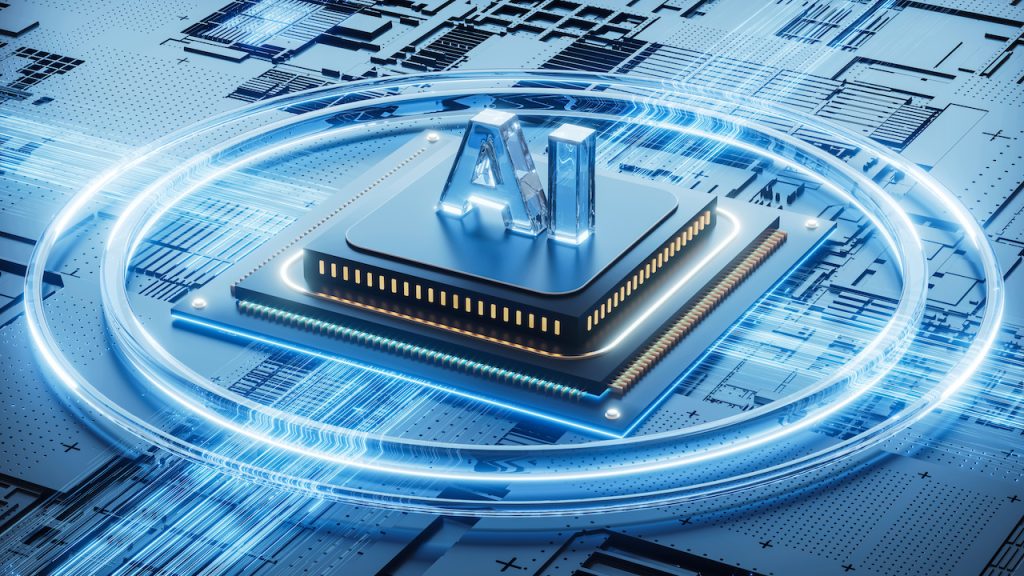
In recent years, artificial intelligence (AI) has emerged as a game-changing technology that has transformed the way businesses operate. With the rise of AI, the demand for dedicated servers has also increased significantly. In this blog, we will discuss the benefits of dedicated servers for AI applications and how they can help businesses to leverage the power of AI.
What are Dedicated Servers?
A dedicated server is a physical server that is exclusively used by a single user or organization. Unlike shared hosting, where multiple users share the same server, dedicated servers offer complete control over the server resources, including CPU, RAM, storage, and bandwidth. This makes them ideal for applications that require high performance, reliability, and security.
Benefits of Dedicated Servers for AI
AI applications are typically resource-intensive and require high-performance computing to process large amounts of data. Dedicated servers offer several benefits for AI applications, including:
- High Performance Computing: Dedicated servers are equipped with powerful processors, high-speed RAM, and large storage capacities, making them ideal for AI applications that require intensive computing resources.
- Scalability: AI applications often require a large amount of computational power to process data in real-time. Dedicated servers can be easily scaled up or down, allowing businesses to meet the demands of their applications as they grow.
- Enhanced Security: Dedicated servers provide enhanced security features, including firewalls, intrusion detection, and prevention systems, and other security measures that help protect sensitive data from cyber threats.
- Improved Reliability: Dedicated servers are known for their high uptime and reliability. This is particularly important for AI applications, which require continuous processing to ensure that the results are accurate and timely.
- Dedicated Support: Dedicated servers often come with dedicated technical support from the hosting provider, which can be crucial for businesses that require assistance with their AI applications.
AI Applications that can Benefit from Dedicated Servers
Dedicated servers can be used for a wide range of AI applications, including:
- Machine Learning: Dedicated servers can be used for training and inference in machine learning applications, which require large amounts of data to be processed in real-time.
- Natural Language Processing: AI applications that process large amounts of text data, such as natural language processing (NLP), can benefit from the high-performance computing capabilities of dedicated servers.
- Computer Vision: Computer vision applications, such as image and video processing, require large amounts of computing power to analyze visual data in real-time.
- Robotics: AI-powered robots require high-performance computing resources to process data and make decisions in real-time.
Choosing the Right Dedicated Server
Not all dedicated servers contain the proper hardware to handle the performance requirements AI applications demand. However, TurnKey Internet’s Enterprise Series Dedicated Servers feature 3rd Gen Intel Xeon Scalable Processors, delivering better performance, improved memory speed, power efficiency, advanced security technologies, and increased I/O bandwidth to accelerate diverse AI workloads from the data center to the intelligent edge. It’s the only data center CPU with built-in AI acceleration, end-to-end data science tools, and an ecosystem of smart solutions.
Conclusion
Dedicated servers offer several benefits for businesses that require high-performance computing for their AI applications. With the rise of AI, the demand for dedicated servers is expected to continue to grow in the coming years. By leveraging the power of dedicated servers, businesses can take advantage of AI technologies to improve their operations, enhance their products and services, and gain a competitive edge in their respective markets.
Follow Us :Share :
Top 6 Reasons Why You Should Choose Bare Metal Servers no comments
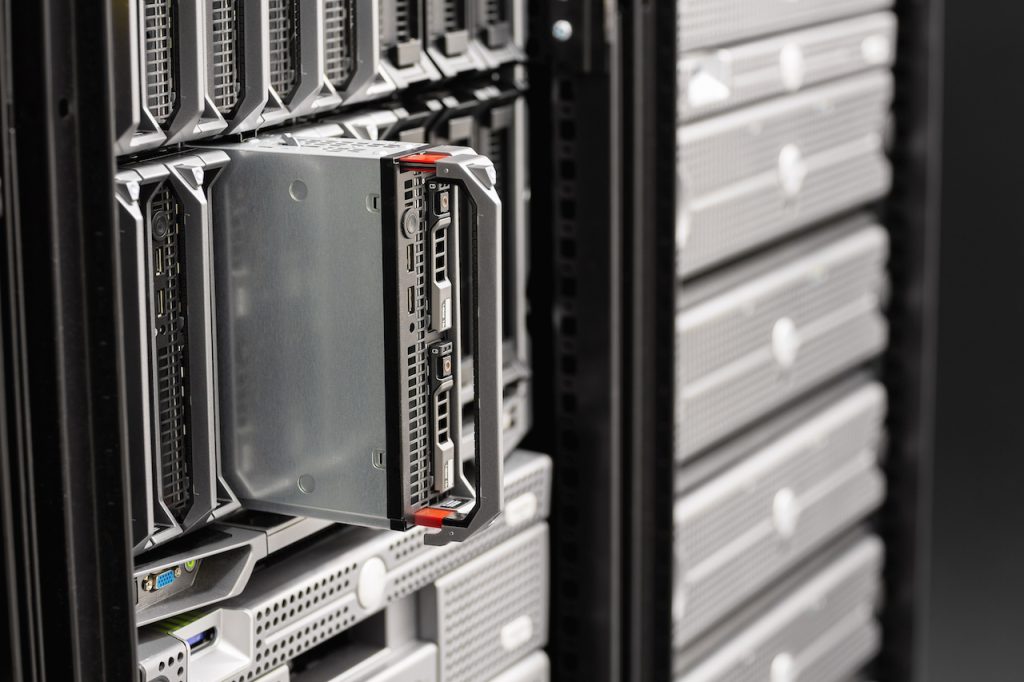
When it comes to choosing the right server infrastructure for business, making the right call is important because the right infrastructure can help in the growth of your business. One of the choices to make is bare metal servers, also known as dedicated servers. Bare metal servers are physical servers customized to host business applications and services. Moreover, users can further rent these private servers from a web hosting provider that is not shared with any other tenant or customers.
Businesses and enterprises look for scalability and cost-effectiveness that don’t compromise performance, security, and customization. In this context, it’s important to explore the reasons why businesses should choose bare metal servers and how they can leverage them to improve their operations.
Performance
Bare metal servers excel in performance over cloud or virtual servers as they have dedicated hardware resources so that they can utilize all the resources at hand. When the hardware resources are customized strictly just for one client, then no virtualization overhead can slow down the server. A bare metal server’s performance makes it ideal for high processing power tasks with low latency. Therefore, bare metal servers are capable of handling high-end applications and tools such as machine learning, artificial intelligence, big data analytics, and others.
Customizability
Bare metal servers provide customization options more than any other hosting solution. Businesses with bare metal servers have complete control over the hardware and software configurations over time. So, if business requirements grow over time, bare metal servers are configurable in every way. Configurations include CPU, RAM, SSD, hard drive, bandwidth, and other options. Therefore, a tailored approach to customizable infrastructure results in higher performance and stability.
Suppose a business or any other service, such as an airport or hospital, is running a resource-intensive application, such as dealing with continuous amounts of extensive data. In that case, a dedicated metal bare server can manage the workload. Moreover, if there’s more overload, say during the holiday season at the airport, bare metal servers are capable of handling it as it can be further customized.
Access to physical hardware
As bare metal servers are physical servers installed on-sight, they are accessible at any time. As the sole tenant of the dedicated server, you can be worry-free about any potential data breaches as such scenarios might happen with shared servers otherwise.
As a business or enterprise, when you are the administrator of the infrastructure of a bare metal server, you have full control over the environment, including resources and security. Besides access, it also gives reliability over shared networks, as applications running on dedicated servers have better uptime and low latency.
Security
Businesses and enterprises that don’t want to compromise on data and look for consistent and reliable performance always go for bare metal servers. Enhanced security is automatically guaranteed when the physical server is separate and is not shared with any other tenant. In the case of shared tenants, there’s a risk involved in cyber-attacks and data breaches if your tenant software is not secure enough, and you also stand a chance to bear the brunt.
Physical security is also ensured due to bare metal servers. Physical theft or tampering is reduced because access to the server is restricted to authorized individuals. Security measures such as biometric authentication, surveillance cameras, and access controls can be taken for foolproof security.
Low upfront expenses
Imagine paying upfront for the only thing that you need, and not everything else comes with it. Where you also have the option to add more resources in the future if there’s a need. Bare metal servers do that, as you only pay for the resources you need. Bare metal servers also have a low cost of ownership compared to virtual servers where you have to pay for the resources even if you are not utilizing them. Ownership of bare metal servers is also beneficial as they have long lifespans and low maintenance costs.
Although it may feel like bare metal servers have a higher upfront cost, this is just one time. With virtual servers, licensing fees, and storage quickly add up over time. A one-time hard swallow of a bitter pill is always better than swallowing bitter pills now and then. Due to low balancing deployment costs and overall server performance, bare metal offers a straightforward and convenient solution with significant savings on computing resources.
Scalability at your door
Imagine hosting your data on a virtual network or in-house physical server hardware, and you witness an unexpected spike in volume, and you need to scale up the infrastructure. You can do that, but there are two drawbacks. One is it won’t be urgent so you will have to wait. Secondly, you will end up paying more for the resources that were already sitting idle.
Bare metal servers work, on the contrary, as they give a localized set-up along with access to tools such as performance and usage analytics so that the IT team can optimize and scale server infrastructure when there is high demand.
Another benefit of bare metal servers is that they can be added to an existing infrastructure quickly and easily. Bare metal servers can be deployed and configured in a matter of minutes. It can help businesses and enterprises scale up their infrastructure to meet higher demands quickly.
Conclusion
If you are starting a new business or already have a business and thinking of changing your data server altogether, then bare metal dedicated servers should be your go-to choice as they are low-cost alternatives that can help you in growing and meeting changing needs over time. As a business, you can leverage the benefits of bare metal servers to improve operations, increase productivity, and gain a competitive advantage in the market.
Follow Us :Share :
Earth Day 2023: Go Green with TurnKey Internet no comments
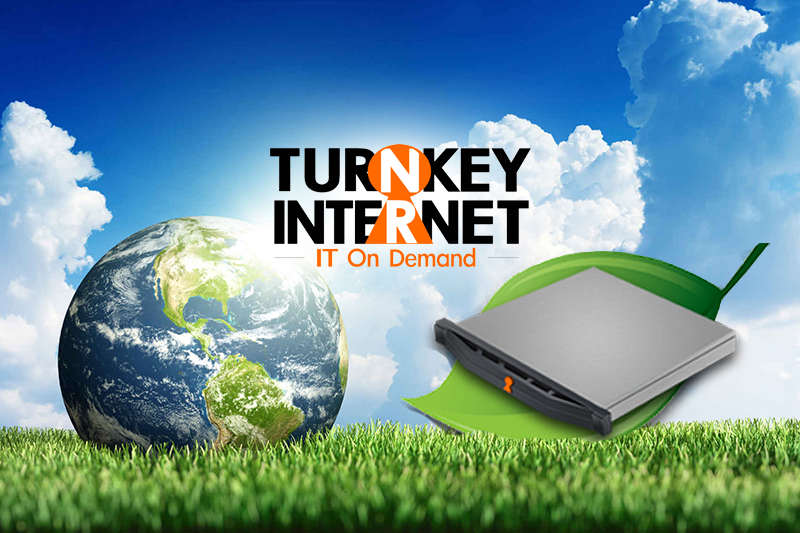
Earth Day is a global event celebrated annually on April 22nd to raise awareness about the need to protect the environment and promote sustainability. As the world becomes more dependent on technology, it’s essential to consider the impact of technology on the environment. One way to minimize this impact is by creating green data centers.
Data centers are facilities that house computer systems and related components, such as telecommunications and storage systems. They are essential for modern businesses, governments, and institutions, as they provide a centralized location for data processing, storage, and dissemination. However, data centers consume a considerable amount of energy, which contributes to the emission of greenhouse gases and other harmful pollutants.
Green data centers are designed to be environmentally friendly, using energy-efficient technologies and practices to minimize their impact on the environment. Here are some of the ways green data centers help reduce energy consumption and promote sustainability:
- Efficient cooling systems: Traditional data centers use air conditioning systems to keep servers cool, which can be very energy-intensive. Green data centers use efficient cooling technologies, such as Cold Containment systems, to reduce energy consumption.
- Renewable energy sources: Green data centers use renewable energy sources, such as solar, wind, and hydroelectric power, to generate electricity. This reduces the reliance on fossil fuels and helps to minimize greenhouse gas emissions.
- Virtualization: Green data centers use virtualization technology to consolidate multiple physical servers into a single virtual server. This reduces the number of physical servers needed, which in turn reduces energy consumption.
- Energy-efficient hardware: Green data centers use energy-efficient hardware, such as solid-state drives and low-power processors, to minimize energy consumption.
- Recycling: Green data centers have recycling programs in place to ensure that old equipment is properly disposed of or repurposed, reducing waste and minimizing the impact on the environment.
By adopting these practices, green data centers help to minimize the impact of technology on the environment while still providing essential services to businesses, governments and organizations.
TurnKey Internet’s Green Data Center
At TurnKey Internet, we take green seriously. Our green data center is the choice of clients in over 100 countries who turn to TurnKey as both an economical and ecological answer to their IT needs.
Our environmentally-conscious approach assures low-impact, low-energy answers to everyday cloud-hosting needs by leveraging the most robust clean energy systems available today, while maintaining the highest level of data center reliability and performance.
TurnKey Internet’s data center leverages only green clean energy, including our on-site solar power plan and Hydro Electric power feed from New York’s Recharge New York program. In addition to this our data center is among the most efficiently designed system in the world, utilizing advanced cooling techniques and modern technology to provide a clean, and precisely cooled facility to the highest standards.
The U.S. Government’s Environmental Protection Agency designated our New York Data Center as the 37th in all of the United States, and second located in New York as a certified Energy Star Data Center. TurnKey Internet also earned the Environmental Excellence Award from New York State’s Department of Environmental Conservation, in recognition of our innovative facility design and outstanding commitment to environmental sustainability, social responsibility and economic viability.
As we celebrate Earth Day, it’s essential to recognize the role that green data centers play in promoting sustainability and protecting the planet for future generations. To help celebrate, we are offering a promotional discount on our Dedicated Servers, Cloud VPS, and Web Hosting solutions. Use coupon code GREEN at checkout for 15% off your order!
For more information on TurnKey Internet’s green data center and cloud hosted solutions, visit www.turnkeyinternet.net
Follow Us :Share :
What Makes a Green Data Center Green? no comments

It shouldn’t come as a surprise when I tell you that we humans haven’t been too kind to Mother Nature lately. In fact, it seems that every time you open the newspaper or turn on your TV, there is a new fact or statistic telling us all how we are destroying our planet. And it’s not just you and me. It’s the sum of our everyday, first world amenities that may be slowly taking a toll on the rest of the plant. The airline and automobile industries, the pharmaceutical industry and businesses involved with fertilizers are just a few things we take for granted that could possibly be hurting us more than helping.
But while over 7 billion people roam the Earth, many of us, are slowly becoming more conscious on the effect we are having on our planet. Here at TurnKey Internet, we realize the effects data centers can have on the environment as well. Ever since we established our company, we’ve been taking large strides to make our data center as green as possible.
But how can you make a data center green? And what does it take? Well, let us tell you!
We’ll start from the outside. If you drive up to our data center, you may not notice one of our coolest and biggest features that make us so green. We have an advanced on-site solar array that provides clean, pollution-free power that covers our entire roof!
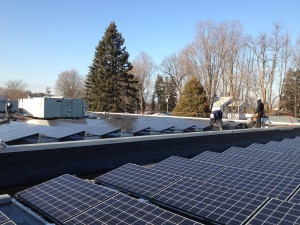
As we head inside, you probably wouldn’t notice something else that would be right in front of your face. The lights! You know those little energy saving lights you buy for your home? Well imagine if you could bring them to work with you, replace those awful florescent lights, and save money while using a lot less energy.

Next, we head into the data center. If you have been in a data center before, then you might notice something drastically different about ours. Well we call them “pods” or to be more specific, state-of-the-art Smart Aisle Cold Containment Pods. These awesome things use a fraction of the amount of energy typically used in a data center by using in-row precision spot cooling. This spot cooling works with in-rack temperature sensors that regulates the climate and keeps the servers at an optimal temperature.
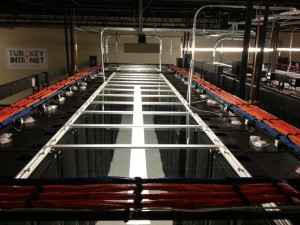
Finally, another great feature at our data center is that we receive hydroelectric power for New York’s Niagara Falls, thanks to the ReCharge New York program.

That’s right. Those beautiful falls are helping us become one of the most energy-efficient data centers around. Because here at TurnKey we mean business… and we mean green!
To learn more about TurnKey Internet’s Green Data Center, visit www.turnkeyinternet.net/green Follow Us : ![]()
![]()
![]()
![]()
![]()
Share : ![]()
![]()
![]()
![]()
![]()
Top 6 Web Hosting Problems and How to Avoid Them no comments
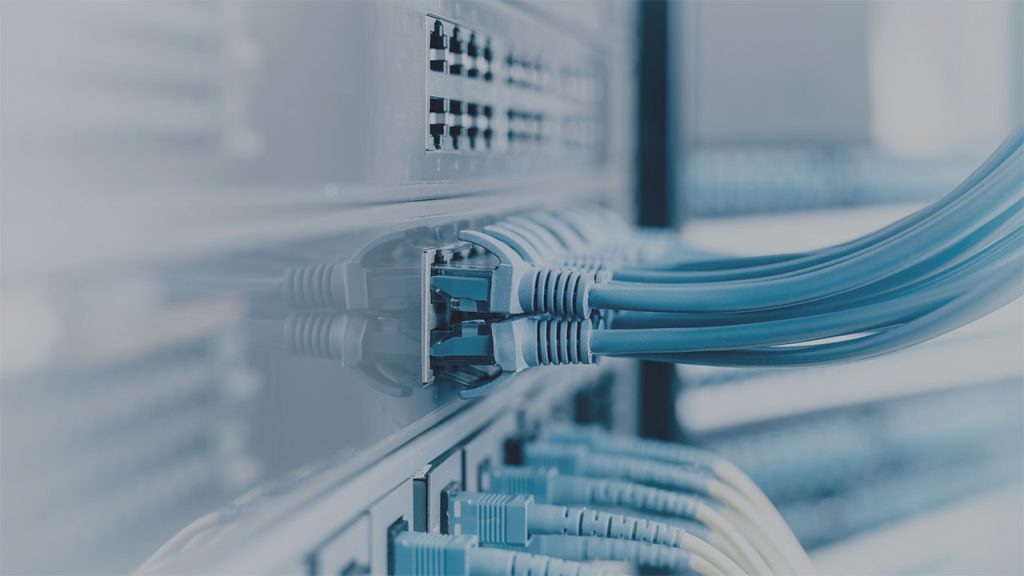
Long gone are the days when someone had to make a well-thought-out plan to make and launch a website. It is in the past now. Today, anyone can buy a domain name, choose a web hosting provider, and set up their website by choosing from hundreds of website designs and themes readily available. Although there is no need to spoil the mood, especially when you are excited, you can still face problems when choosing the right web hosting service provider.
Before starting, it is important to see what problems you can face if you choose the wrong or less-known web hosting provider and what problems you may face. Here, we outline some web hosting problems and how to avoid them.
1. Slow Website Speed
Speed is the key factor. After all, you wouldn’t expect users to wait to load pages. If the website is slow, a user will vanish in the blink of an eye. Moreover, if your website grows in traffic over time and the website is still slow, it will complicate the matter. According to the study, the standard website loading time should be between 0-4 seconds. If your website takes longer than that, you are leaving a bad impression on the user.
To avoid the problem, choose a web hosting service provider in a nearby region. If you plan to set up your website in America, then ideally, the web hosting provider should be from America rather than Asia. Sometimes, web hosting servers are in limited locations, which should be a red flag. Always opt for the service having multiple server locations around the globe. Also, make sure that the web hosting provider is using high performance, enterprise grade servers, optimized for website speed.
2. Downtime
When the website is set up, you can face downtimes. Downtime means your website going out of order and displaying error messages to the user. Again, it leaves a bad impression since the website is not responsible for it directly. It happens due to server issues or ongoing maintenance at the web hosting provider’s end. Frequent downtimes may lead to less traffic and lower ranking in search engines.
To avoid this issue, always choose a web hosting service that provides high uptime and regular monitoring of the website. You can ensure that by looking for a web hosting solution that provides a backup plan during downtime. Regularly update the website software and plugins to avoid security issues. Always optimize the website by installing just one theme and fewer plugins so you don’t face any issues in case of server overload.
3. Web Hosting plans
There are many web hosting plans for each service provider. Some providers do not disclose the limitations of their web hosting plans. Make sure to choose a web hosting plan that provides a 100% uptime guarantee for your website. Moreover, as your website grows and tracks more traffic, you need a high-tier hosting plan so that you can have more resources and features for your website.
Web hosting plans start at different points, so always choose as per your need and budget. Make sure that your web hosting service provider also offers scalability options. Also, it should be flexible as well when you need to downgrade your plan. Many web hosting services just provide an annual plan, and if you need a monthly plan just in case to see how things work out, you might want to look somewhere else where a monthly subscription option is also provided.
4. Security
Many web hosting companies just sell hosting solutions without being able to provide high-grade security options. A lack of security means your website will be vulnerable to getting hacks and possibly data theft, and your sensitive data will be compromised.
A suitable web hosting provider will provide SSL certificates, firewalls, malware scanning, and DDoS protection. Some services provide SSL certificates, which provide encryption and authentication for data transfer in a plan, and some charge extra. Malware attacks are common, especially on websites with low domain authority, so always look up a service that protects against malware attacks. Also, regular backups are important in case of some security breach, and you can restore your website to a previous backup state. Security for a website is essential as it provides peace of mind, especially when running an eCommerce store online.
5. Bandwidth
When choosing a web hosting service, consider the bandwidth offered by the provider. Bandwidth is necessary to ensure that a website can handle high volumes of traffic without experiencing slow loading times, downtime, or suspension. A website needs to have a hosting plan that provides sufficient bandwidth to ensure a fast and reliable user experience. Many web hosting providers now provide unmetered or unlimited bandwidth options.
6. Customer Support
Reliable customer support is important as you may encounter technical issues or need assistance with web hosting service. Many web hosting service claims to provide 24/7 assistance through chat, email or even calling.
You can always check the claimed reliability by inquiring about buying a service. If customer service is prompt rather than just a bot chat, then it’s a good option to go for. Alternatively, you can always check reviews and ratings of pre-existing customers for a better idea.
Conclusion
Although it’s easier to set up a website, always consider factors such as website speed, downtime, web hosting plans, security, bandwidth, and customer support before making a final decision. By following the tips and solutions provided, you can avoid common web hosting problems and ensure that your website runs smoothly and securely. Always prioritize the needs of your website and choose a web hosting service that meets those needs within your budget.
Follow Us :Share :
Enterprise Grade Bare Metal Servers that you can choose for your business no comments
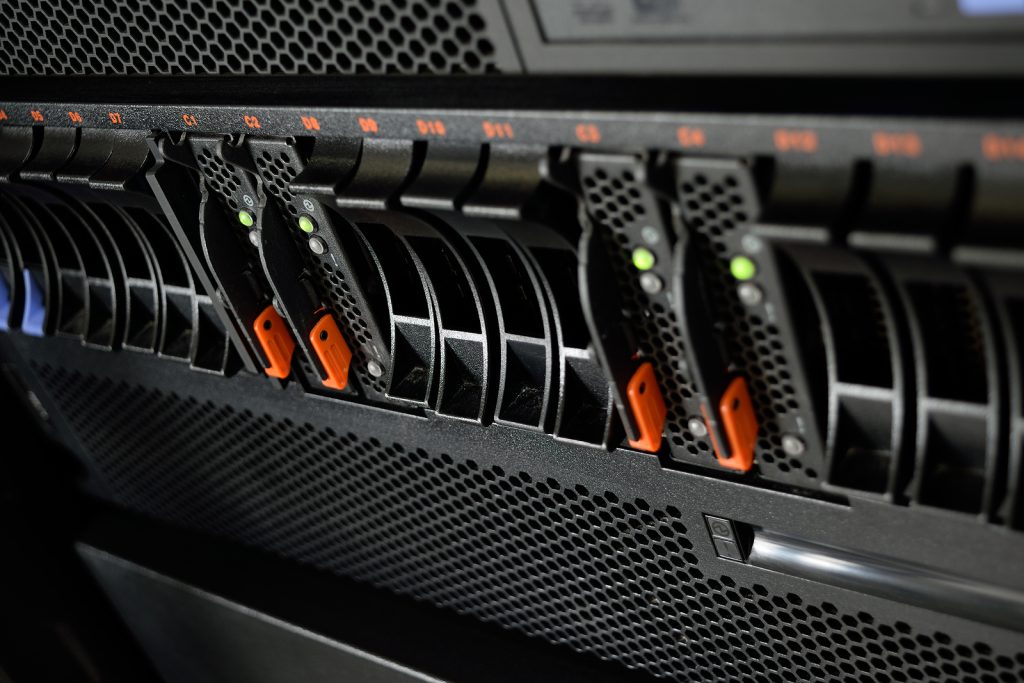
What are Enterprise-grade bare metal servers?
Enterprise-grade bare metal servers are physical servers that are designed for a single tenant so that the entire server is solely for the use of a single organization or an individual. They provide organizations with a high level of control and customization over their server environment.
They are used by larger organizations with high workloads, and which are conscious of high levels of performance and security. They have many uses such as hosting web applications, running databases, and performing data analysis. Enterprise-grade bare metal servers are powerful, reliable, and secure servers designed for running complex applications, databases, and workloads. They offer a powerful and reliable hardware platform for running mission-critical applications, databases, and workloads.
Types of Enterprise-Grade Bare Metal Servers
- Rack Servers: A rack server is a standardized frame that can be hooked up in a rack and is usually used for large-scale data center deployments.
- Blade Servers: Blade servers are thin, rectangular servers that are designed to be stacked collectively in a rack. They are frequently greater environmentally friendly than rack servers due to their smaller shape factor.
- Tower Servers: Tower servers are designed to be positioned on a desk or ground and are generally used in small-scale deployments.
- Cloud Servers: Cloud servers are virtual servers that are hosted on the cloud. They supply scalability and flexibility; however, they may not provide identical overall performance or reliability as physical servers.
Why You Should Consider an Enterprise-grade Bare Metal Server for Your Business
As organizations grow, they want extra dependable and effective servers to meet the needs of their applications, databases, and different IT services. Traditional cloud-based options are frequently insufficient in meeting these requirements, and they can be expensive. Enterprise-grade bare metal servers are a terrific choice for organizations that want a cost-effective, high-performance server solution.
Bare metal servers are physical servers that are isolated and not shared by other clients. This permits organizations to have full management over their server environment, with no restrictions or obstacles imposed by using a cloud-based provider. Bare metal servers provide a variety of benefits over common cloud servers, consisting of better performance, scalability, and price savings.
Performance
High performance is one of the largest benefits of an enterprise-grade bare metal server. Since the server isn’t operating in a virtualized environment, the processor, RAM, and different aspects can run more efficiently, ensuring greater performance. This is vital for groups that want to run high-performance applications or databases.
With a bare metal server, groups additionally have greater management over their server environment. This allows groups to customize their server to meet their unique wants and requirements. For example, they can pick the processor, RAM, storage, and port speed that fits their needs.
Scalability
Bare metal servers are elevated scalability. As organizations grow, they in many instances choose to scale up their server resources. With a bare metal server, businesses can rapidly upgrade performance to meet their needs.
Cost Savings
Bare metal servers can help companies save money. Since businesses have full management over their server environment, they can pick the hardware and software that fits their unique needs. This can help companies to minimize their server costs, as they don’t have to pay for unnecessary hardware or features. Additionally, companies save on working costs, as bare metal servers require much less upkeep and management.
Enterprise-grade servers are a first-rate IT solution for groups that want reliable, high-performance servers at the most economical price. They provide accelerated performance, scalability, and financial savings in contrast to normal cloud-based solutions. By selecting an enterprise-grade bare metal server, organizations can have an effective and dependable server answer that meets their unique requirements.
Dell PowerEdge R650xs Bare Metal Servers
The Dell PowerEdge R650xs is an enterprise-grade, bare metal server that delivers industry-leading performance and reliability. The server is powered by Intel Xeon Scalable processors and can support up to four hard drives or up to four solid-state drives, depending on the model. It is designed to be easily expandable and highly reliable, making it an ideal choice for running mission-critical applications.
The server is outfitted with up to 24 DIMMs of DDR4 memory and up to 8 PCIe slots for extra expansion. It additionally helps redundant electricity components for brought reliability and an elective interior storage controller for greater storage performance. Additionally, the server is outfitted with administration aspects along with Dell Open Manage and iDRAC9, permitting customers to remotely control the server and its components.
The server offers superior safety features, virtualization capabilities, and the ability to run a variety of operating systems and environments, such as Windows, Linux, and VMware. The Dell PowerEdge R650xs is a perfect solution for businesses that want a powerful and reliable server for mission-critical applications, databases, and workloads.
Conclusion
Enterprise-grade bare metal servers provide businesses with the performance, scalability, and reliability they need to run their applications. When choosing an enterprise-grade server, it is important to consider your specific requirements and select the type of server that best meets your needs.
Follow Us :Share :
2023 is the Year You Should Choose Bare Metal Servers no comments
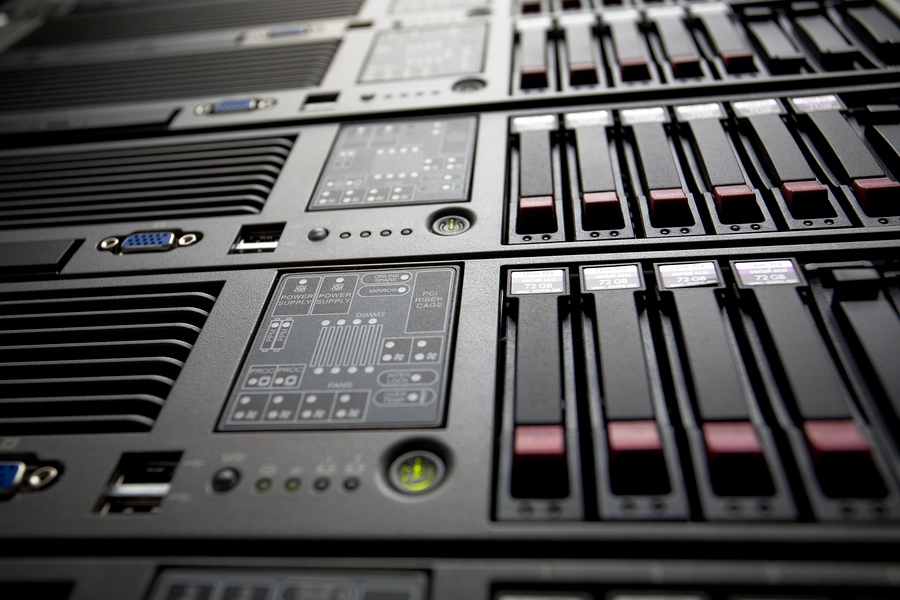
What are bare metal servers?
A bare metal server is a physical server that runs directly on the host’s hardware without any virtualization layer. Bare metal servers can also be termed “single tenant” or “dedicated” servers. The term bare metal server also differentiates it from advanced types of cloud hosting and virtualization servers.
The common names of bare metal servers also justify their usage. A dedicated server then implies that the operating system and all the applications related to that operating system can run directly on the server’s hardware while giving direct access to the resources like CPU, memory, storage, and network, so is the reason behind calling dedicated servers. Hence, a bare metal server leads to improved performance, security, and control so justifying its second common name, single tenant.
Applications of bare metal servers
Bare metal servers have many practical applications, and they can be used in services such as web hosting, game servers, databases, high-performance computing and big data applications, cloud computing, and internet of things (IoT) applications. Some of the most common applications of bare metal servers include:
- Web Hosting – Bare metal servers are often used to host websites and web applications, as they provide the resources and performance to handle high traffic.
- Game Servers – Many online multiplayer games require dedicated servers to host game sessions or competitions. Bare metal servers can host a lot of data being consumed during such sessions.
- Databases – Bare metal servers are also used to host databases, as they are capable of handling high-transaction workloads.
- High-performance computing and big data – We can see bare metal servers being used in scientific research, machine learning, and big data analytics, as they can handle large chunks of data efficiently.
- Cloud computing – Bare metal servers are often used in cloud computing environments for cloud-based applications and services.
- Edge computing and IoT – Bare metal servers can be used in edge computing and IoT services where they can handle the data processing, storage, and networking close to the end devices and can also be used to connect to the cloud to centralize data and analytics.
- Storage and Backup – Bare metal servers can be used as storage and backup solutions as they come in with a built-in large storage capacity and high-performance storage interfaces.
- Networking – Bare metal servers are also used in networking appliances where they can perform tasks such as routing, firewall, VPN, and email services.
3rd Gen Intel Xeon Scalable Processors
Dell unveiled its latest 3rd Gen Intel Xeon Scalable Processors in Q2’, 2021, which are the latest in Dell’s bare metal servers. These processors provide up to 40 cores with an astonishing per-core performance for popular cloud databases, virtualization, and all sorts of AI workloads.
The latest Intel Optane persistent memory 200 series can be used to extend system memory capacity per processor which can reach up to 12 TB on a 2-socket server. The new memory delivers 32% higher bandwidth on average versus if compared to first generation Xeon Scalable Processors.
The processors are built on a 10nm process technology and feature a high core count of up to 40 cores and high clock speeds, which allows them to deliver high performance for a wide range of workloads. The processors can be configured from entry-level to high-performance models as per the business requirements.
The security feature of 3rd Gen Intel Xeon Scalable Processors
3rd Gen Intel Xeon Scalable Processors come with many built-in security features. Some of the features are introduced and some are improved to predecessors.
Intel Crypto Acceleration
Intel Crypto Acceleration can accelerate a variety of cryptography tasks to speed data encryption and then decryption.
Intel Software Guard Extensions
Intel Software Guard Extension provides secured and isolated enclaves for sensitive apps and data. It can also help in protecting data and code when the system’s software stack has been compromised.
Intel Total Memory Encryption
Intel Total Memory Encryption delivers full physical memory encryption support to enhance data and virtualized workload protection.
Who Should Use Bare Metal Server?
Small- to medium-sized organizations can employ bare metal servers because they offer an affordable hosting option with multiple configuration options that can scale and automate resource allocation quickly.
The financial services and banking sector, as well as government and the healthcare sector, are some areas that can rely on dedicated hosting and colocation. Additionally, bare metal works well for highly efficient tasks such as database apps and business intelligence. Due to its great performance, projects like media encoding operations and render farms choose bare metal servers over virtualized servers. With the introduction of Dell’s 3rd Gen Intel Xeon Scalable Processors, things have gotten faster and more efficient.
Why should you choose bare metal servers?
Website performance
High-performance computing is provided by bare metal servers. The resources on the single-tenant physical server can be tailored to your particular demands to ensure that it operates as efficiently as possible for you. This means that by making your resources safer and more scalable, bare metal servers can enhance the overall performance of your website. High-performance computing is only possible with the bare metal cloud.
Server Access
A private network can be used to access bare metal servers, and the tenant can be connected to the system through remote desktop access. You can also use a Secure Shell tunnel to connect to a server that is running Linux if you need to. This allows you to access the server as if it were physically present on the workstation. Software for remote desktop access encrypts on both your side and the server’s side to increase security.
Conclusion
The 3rd Gen Intel Xeon Scalable platform brings advancements and hardware-enhanced virtualization across compute, network, storage, and persistent memory that support cost-efficient, flexible, and scalable multi-cloud to reliably deliver amazing business-to-business and business-to-consumer experiences.
If you are still not sure which bare metal server to choose for your business or hosting needs, TurnKey Internet can help, as we offer many configurations and can provide guidance as well.
Follow Us :Share :



